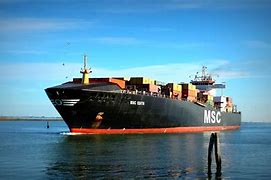PERMIT ISSUED FOR KAIROS POWER’S HERMES TEST REACTOR
Recently, the U.S. Nuclear Regulatory Commission (NRC) issued a permit to allow Kairos Power to construct their non-power test reactor at the Heritage Center Industrial Park in Oak Ridge, Tennessee.
This test reactor will be a 35 MW (thermal) non-power version of their fluoride salt-cooled high temperature reactor, the KP-HFR.
Kairos Power has also submitted a construction permit application for Hermes 2, a proposed two-unit demonstration plant that would build on the learnings from Hermes KP-HFR and would produce electricity while demonstrating the complete architecture of future commercial plants. Implementation of these reactors (KP-HFR and Hermes 2) will help mitigate risks in technology, licensing, supply chain, and construction while achieving cost certainty for their design.
Kairos Power is headquartered in Alameda, California and was founded in 2016. They describe their company as a cutting-edge organization at the forefront of advanced nuclear technology, dedicated to developing innovative solutions for clean and sustainable energy, and focusing on the design and implementation of a next-generation molten salt reactor (MSR) technology.
Hermes is one of several new reactor technologies to receive federal support through the Department of Energy’s Advanced Reactor Demonstration Program. It is the first non-water-cooled reactor to be approved for construction in the USA in more than 50 years. U.S. Assistant Secretary for Nuclear Energy Kathryn Huff said the NRC approval is a “huge milestone” for the energy sector. “NRC’s approval of the first ever CPA granted to a Generation IV reactor charts a path forward for future design applications as we work toward deploying new reactor technologies,” she said. “This accomplishment is a testament to the collaborative work among Kairos, the NRC, DOE and all stakeholders involved in the project.”
Kairos is currently testing the high-purity fluoride salt coolant – known as Flibe – at its first engineering test unit (ETU) in New Mexico. The company plans to build and operate three ETU iterations before constructing Hermes.




